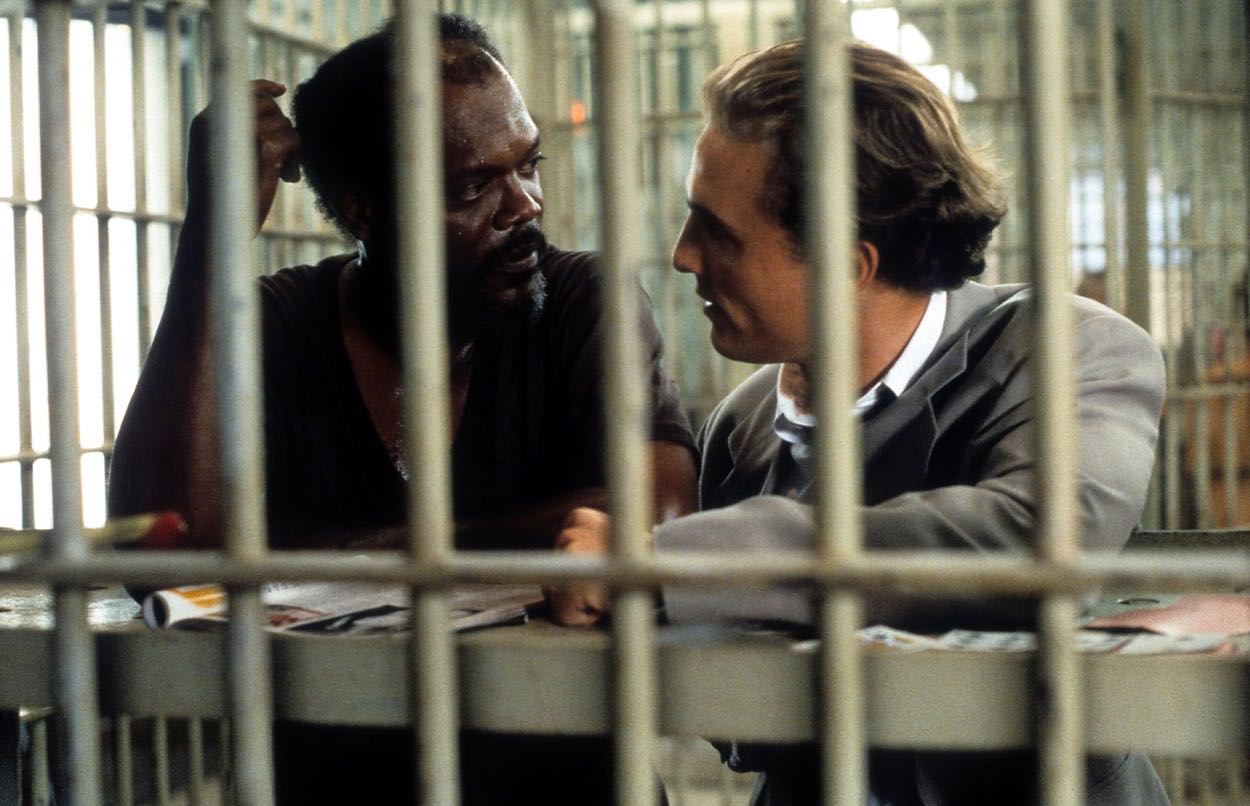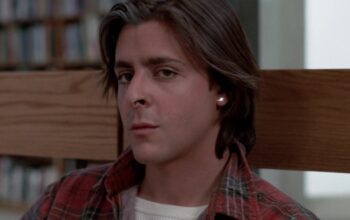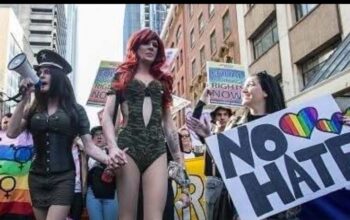No matter what part of the world you live in, whether it be the sandy beaches of the Bahamas, the tranquil water villages of the Netherlands or the harsh deserts of the Outback, the one undeniable aspect of life is hate: hate for race, hate for gender, hate for actions, hate for attitudes. Like it or not, the reality of our existence is we, as humans, find extreme difficulty in living without hate. Many groups have been victimised famously by hate on astronomical levels, and because of it, millions of innocent people have been needlessly harmed because of a single powerful emotion. ‘A Time to Kill’ is one such film that explores hate in the modern era and one I firmly believe everyone should watch at some point in their lifetime.
My first introduction to ‘A Time to Kill’ was a few years ago when my mother showed me the scene where Matthew McConaughey delivers his closing argument. An impactful, heartbreaking recollection of the crime which sets in motion the events leading to Carl Lee Hailey’s conviction and a subtle revelation of the jury and the public’s perspective of the incident. It only hit me a few nights ago, when I first watched the film in its entirety the importance the film held. A lot of films and books focus on racism on a more macro-level, covering the Holocaust, the Jewish slavery in Ancient Egypt, the Civil Rights movement, whereas ‘A Time to Kill’ focuses on just how much hurt can occur in your own backyard.
The film mostly follows the trial of Carl Lee Hailey, an African-American who has been arrested for the murder of his daughter’s sexual abusers. His attorney, Jake Brigance, finds himself fighting for Carl Lee and himself against such dangers as the KKK, damning legal strategies and deceptions to make a martyr out of Carl Lee. As a race war strengthens and burns as the lead-up to Carl Lee’s trial gets closer and closer, it becomes much clearer that racism knows no bounds and the lengths of victimisation are beyond what we can truly understand.
Matthew McConaughey plays Jake Brigance and does so with such sensitivity and emotionality that I refuse to believe he didn’t deserve the Oscar for Best Actor. Even from the first time he hears of the sexual abuse, the subtle drain from his face was disheartening. As I said earlier, his standout scene is his closing argument, which he fights through on the verge of tears. Samuel L Jackson plays Carl Lee Hailey, a role which I’m actually disappointed in myself not for witnessing earlier. After watching the film, I have no idea why his portrayal of Carl Lee Hailey isn’t discussed on the same level as his performance in ‘Pulp Fiction’ or at least ‘Coach Carter’. I’d argue his best moment in the film is coming home to comfort his daughter, you can feel the hurt Carl Lee suffers from knowing that he wasn’t there to stop them. Kiefer Sutherland plays Freddie Lee Cobb, the brother of one of the sexual abusers and newly appointed KKK leader. Unfortunately, Sutherland doesn’t get too many lines to shine in the film, but his cold stone-faced expressions and monotone voice work well for a character so motivated by racism and bloodlust. Sandra Bullock also stars as Ellen Roark, with a southern twang in her voice, she does the job well in every scene like Sutherland, but still, not on the same level as McConaughey or Jackson.
‘A Time to Kill’ is an essential film for everyone to watch in their lifetime, it easily lands in at least the top three best courtroom dramas of all time. You can not say ‘Interstellar’ is McConaughey’s best film, you can not say ‘Shaft’ is Samuel L Jackson’s best film, you cannot say ‘The Blind Side’ is Sandra Bullock’s best film or that ‘The Lost Boys’ is Keifer Sutherland’s best film until you see ‘A Time to Kill’.
Mason’s Top 3 Reasons to Watch ‘A Time to Kill’
- An exploration on how hate crimes affect an entire community
- A courtroom drama about crimes you’re more likely to come across
- A tour-de-force of possibly the most important characters in each of the actors’ filmographies

Mason Horsley is a graduate of UOW with a Bachelor’s degree in Creative Arts, majoring in Creative Writing and minoring in Theatre. He hopes to write and direct a feature film and has been working on screenplays since he was 17. He writes film reviews for the Tertangala and works on his latest project ‘The Last Film’ while working a full-time job at a fish market. Mason despises reviewing films he dislikes and because of this, every review he writes acts as a recommendation.
Credit Image: IMDb




